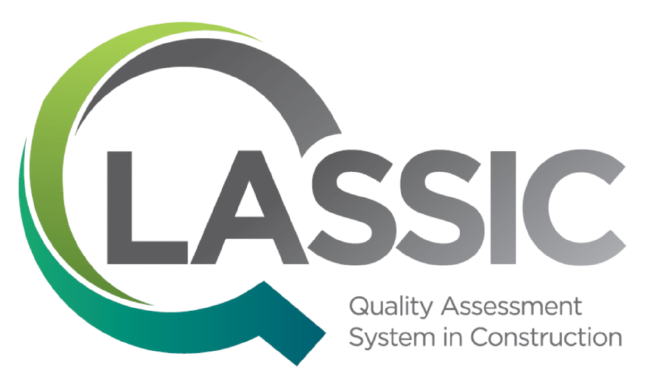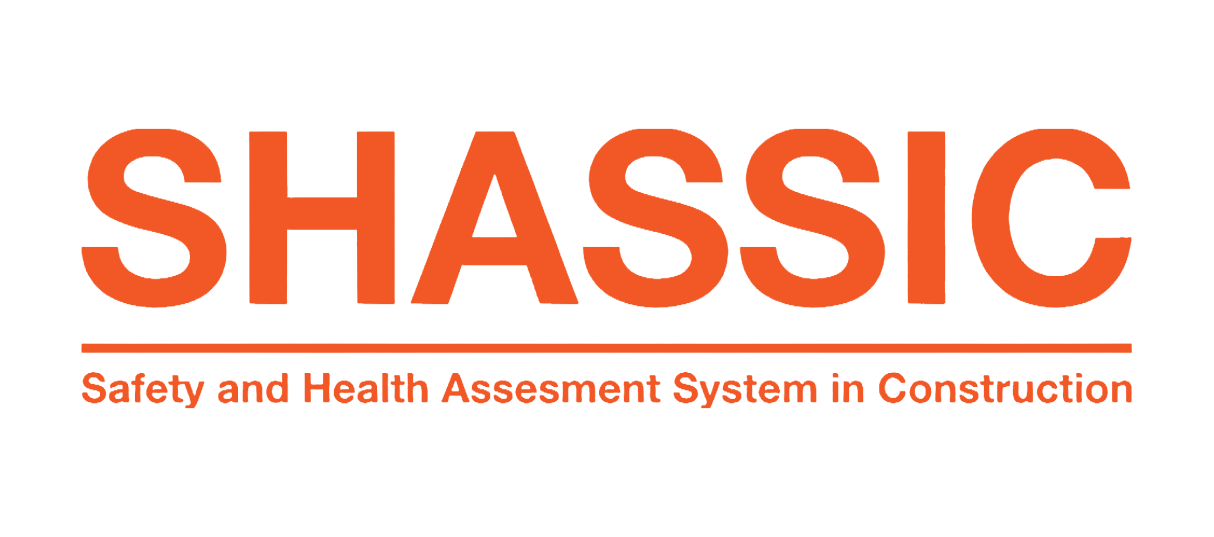Assessment
|
| Construction Assessment Centre (CASC) is a unit under Centre for Quality Assurance and Certification (CQAC) mainly focuses on managing assessment program for both Quality Assessment System in Construction (QLASSIC) and Safety and Health Assessment System in Construction (SHASSIC) also for MyCREST and Sustainable INFRASTAR which are programs owned by the Construction Industry Development Board (CIDB). |
| |
QLASSIC
|
 |
| |
| An independent assessment tool to measure and evaluate the workmanship quality of a building construction work based on Construction Industry Building (CIS 7: 2014 Quality Assessment System for Building Construction Works). It enables quality of workmanship in that project to be objectively measured through a scoring system. |
| |
| National Housing Policy (2018-2025) under Focus No.2 which is to emphasize QLASSIC Certification for all new public and private housing projects. |
| |
| To promote high quality workmanship in construction projects, all QLASSIC Assessments for government projects are fully funded by the government. |
| |
| For application, click here. |
|
|
| |
Application Process/Flow
|
| |
Application
|
| Main contractors to submit application |
|
|
|
Sampling
|
| No of sample to be assessed are based on the project GFA and sampling guideline in CIS 7 |
|
|
|
Notification of Assessment
|
| Independent and certified CIDB assessors are to carry out the assessment |
|
|
|
Project
|
| Undertake assessment at project site |
|
|
|
Certified Issuance
|
| CREAM to issues assessment report and certification |
|
|
|
Certified Issuance
|
| CREAM to distribute the assessment report and certification to applicants |
|
|
|
|
|
| |
|
| |
Benefits
|
- Automatic CCD points = 15 points for contractor’s registration renewal
- Allows project owner / contractors to benchmark their workmanship quality on an industry wide basis.
- Gives that extra competitive edge to project owners/contractors that consistently deliver projects with high QLASSIC score.
- A good QLASSIC score track record serves to enhance the reputation of the project owner/contractor and ensures future marketability
- Towards Continuous Improvement in construction quality
- Eligible to be awarded during QLASSSIC Day
- To have standard quality assessment system for quality of workmanship of building projects
|
|
|
|
| |
Who Can Apply?
|

Developer/Client |
| |

Main Contractors |
|
| |
QLASSIC Building Categories
|
Category A
Residential (Landed) |
|
Category B
Residential (High-Rise) |
| |
Category C
Non-residential
(Without centralised aircon) |
|
Category D
Non-residential
(With centralised aircon) |
|
| |
FAQ
|
|
|
 |
SHASSIC
|
An independent assessment tool to assess the safety and health at the worksite in the construction projects where the assessment covers 25% to 75% of a project physical progress.
SHASSIC Assessment is currently using CIS 10:2022 (latest revision since CIS 10:2018) where it is inclusive of construction planning stage and construction stage.
To promote safety and health standards, all SHASSIC Assessments for government projects are fully funded by the government, subject to availability on a first-come, first-served basis.
For application, click here. |
|
| |
 |
|
| |
Application Process/Flow
|
| |
|
|
|
|
Assessment Date Arrangement
|
|
|
|
Assessor in-charge Arrangement
|
|
|
|
|
|
|
|
|
|
|
|
|
|
|
|
|
|
|
| |
Benefits
|
- Automatic CCD points = 15 points for contractor’s registration renewal
- Fee fully subsidized by CIDB
- Towards OHSAS 18001/MS 1722/ISO 45001 Certification
- Towards Continuous Improvement
- Can participate in MCIEA for Safety Category
- Readiness for Occupational Safety and Health in Construction Industry-(Management) (OSHCIM)
- Subsidized for government project
|
|
|
| |
Who Can Apply?
|

Project Owner |
| |

Main Contractors |
|
| |
FAQ
|
|
|
 |
Sustainable INFRASTAR
|
Sustainable INFRASTAR stand for Sustainable Infrastructure Rating Tool where it applies an objective and evidence-based rating system that assesses the following conditions: land use planning and management, resource management, energy and water management, biodiversity and other ecosystem services, social and cultural protection and stakeholder coordination.
All Sustainable INFRASTAR Assessments for both government and private projects are fully funded by the government, subject to availability on a first-come, first-served basis.
For application, click here. |
| |
| |
|
|
- To create a continuous awareness on the importance of sustainability throughout the pre-commissioning stage of infrastructure projects.
- To prioritise significant environment and social attributes for sustainable infrastructure as early as the conceptual stage.
- To convey an improved performance related to environmental and social through project design and construction.
- To recognise and reward efforts made by projects towards achieving an exceptional level of sustainable infrastructure.
- To ensure the implementation of environmental and social best practices are in accordance with the standards adopted locally and globally.
- To measure the level of sustainability of infrastructure projects.
|
| |
Which Projects Are Applicable?
|
| Sustainable INFRASTAR can be applied to most type of infrastructure projects (except the building portion) including the following: |
| |
 |
- Toll Expressway
- Federal Road
- State Road
- Municipal Road
- Tunnel Highway
- Bridge
|
| |
 |
- Heavy Rail (Commuter Rail)
- Express Rail Link (ERL)
- Light Rapid Transit (LRT)
- Mass Rapid Transit (MRT)
- High Speed Rail
- Funicular Railway Line (Cable Railway)
- Dam/Reservoir
- Water Supply Network
- Water Treatment Plant
- Monorail
|
| |
 |
- Runway
- Public Infrastructure
- Airport Rail Link
|
| |
 |
- Waterway
- Canal
- Port
- Jetty
- Marina
|
| |
 |
- Solid Waste
- Treatment Plant
- Incinerator
- Recycling Plant
- Sewerage Pipe Network
- Wastewater Treatment Plant
|
| |
 |
- Power Plant
- Power Supply Network
- Telecommunication Network
|
|
|
| |
FAQ
|
|
|
| |
| For any enquiries, please contact our support. |
|
|
|
| |
|
|
 |
MyCREST
|
MyCREST, or the Malaysian Carbon Reduction and Environmental Sustainability Tool, aims to guide, assist, quantify, hence reduce, the built environment’s impact in terms of reduced carbon emissions and environmental impact, while considering a more holistic life cycle view of the built environment. It also aims to integrate socio-economic considerations relating to the built environment and urban development.
All MyCREST Assessments for both government and private projects are fully funded by the government, subject to availability on a first-come, first-served basis.
For application, click here. |
| |
|
|
| MyCrest essentially combine three basic tools to construct a “scoring plan” which is then used to assess a building for certification. Each tool is the basis of rating for each phase of the project. MyCREST awards different star rating to the different phases of a project and awards an overall star rating. In this way, all three phases of the project namely the Design, Construction and Operation & Maintenance are being assessed. The tools are: |
- MyCREST Scorecard
- MyCREST Carbon Calculator
- MyCREST Reference Guideline
|
| |
|
|
- To integrate carbon assessment criteria and reduction strategies into the matrix of sustainability resulting in a combined sustainable assessment rating system for the built environment
- To provide a quantifiable carbon assessment within a holistic sustainable rating system by integrating and extending the present criteria into life-cycle-linked performances and parameters
- To extend the present green building assessment into life cycle impacts and its quantification
- To combine both carbon emission and sustainable performance factors into a combined criterion linked to the design, construction, commissioning, and operations of buildings
- To be in line with the aims of Low Carbon City Framework (LCCF) by Ministry of Energy, Green Technology, and Water (KeTTHA)
|
| |
|
|
- To quantify the environmental impacts of the built environment in both carbon reduction and sustainable impact terms
- To ensure the best environmental practice according to global and local standards and targets
- To maintain and improve a database of impacts and best practice case studies to reduce carbon emissions in design and life cycle impacts
- To raise awareness of the life cycle impacts of the built environment and its components
- To balance robustness with ‘durability’ and practicality and ease of use
- To produce a tool flexible enough to be used by all stakeholders, consultants and contractors and for all building types and scenarios
- To balance long and short-term targets
- To balance environmental and 'human' socioeconomic issues
|
| |
FAQ
|
|
|
|
|
|
|
|
|